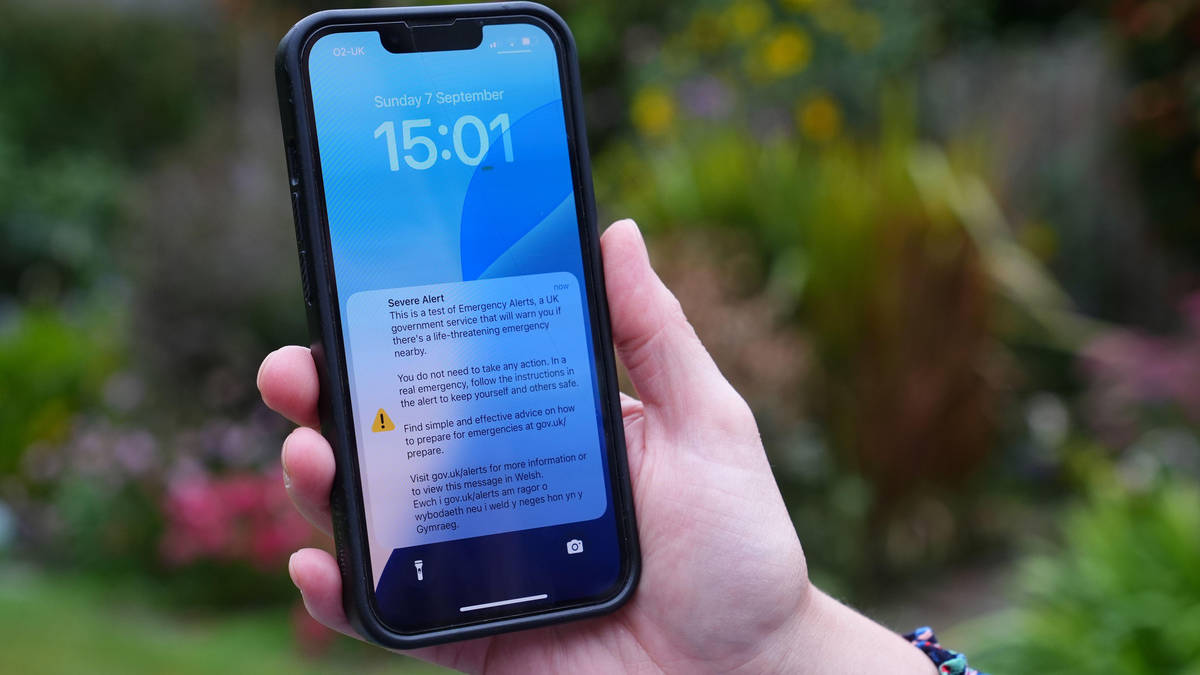Sporting events reportedly had to adjust for the alert, with the Super League derby between Hull KR and Hull FC pushed back.
Meanwhile, the alarm happened between overs at England’s third ODI cricket match against South Africa at Southampton.
Fans had been warned via a message on the big screen about the alert.
In the Ireland v New Zealand Women’s Rugby World Cup at Brighton there was an announcement on the big screen a minute before the alert and then the referee briefly paused the match while it was happening.
And theatre-goers were advised to turn their phones off and drivers urged not to be distracted behind the wheel.
Mobile phone users received a message making clear that the alert was a drill.
A small crowd in the atrium at London’s Liverpool Street Station hastily checked their phones when sirens emitted from devices in the test.
One man was seen waving his phone around after it sounded at about 3pm.
Some appeared surprised by the sudden noise but others seemed aware that the test would be happening.
A couple who were sitting in Liverpool Street Station said they received the test alert while on the tube.
Mark, 44, of Essex, said: “It came through twice for me.
“The whole tube carriage’s phones started going when we got signal.”
His partner Abby said no one appeared surprised by the alert, adding: “Children slept through it and everything.”
A woman waiting in Liverpool Street Station said she was taken by surprise by the test of the national emergency alert before her daughter told her what was happening.
Jasmine Patel, 53, said: “It did take me by surprise but then because Meera was with me she explained.”
Ms Patel and her 19-year-old daughter Meera Sreejit, both from Ipswich, were standing by one of the departure boards when the alert went off.
“It wasn’t loud,” Ms Patel continued, “but you could understand that many people were getting it at the same time.”
The Government has used the system to issue real warnings five times, including in January during Storm Eowyn to warn people in Scotland and Northern Ireland about severe weather.
Approximately 3.5 million people across Wales and south-west England received an alert during Storm Darragh last December.
A 500kg unexploded Second World War bomb found in a Plymouth back garden triggered a warning to some 50,000 phones in February last year.
Messages can be targeted to relatively small areas to pinpoint those at risk.
Around 15,000 phones were alerted during flooding in Cumbria in May 2024, and 10,000 received a warning during flooding in Leicestershire in January this year.
The system is designed for use during the most likely emergencies to affect the UK and warnings would also be transmitted on television, radio and locally by knocking on doors
Government officials also met with domestic violence charities and campaigners for discussions on helping those who needed to opt out of the test.

